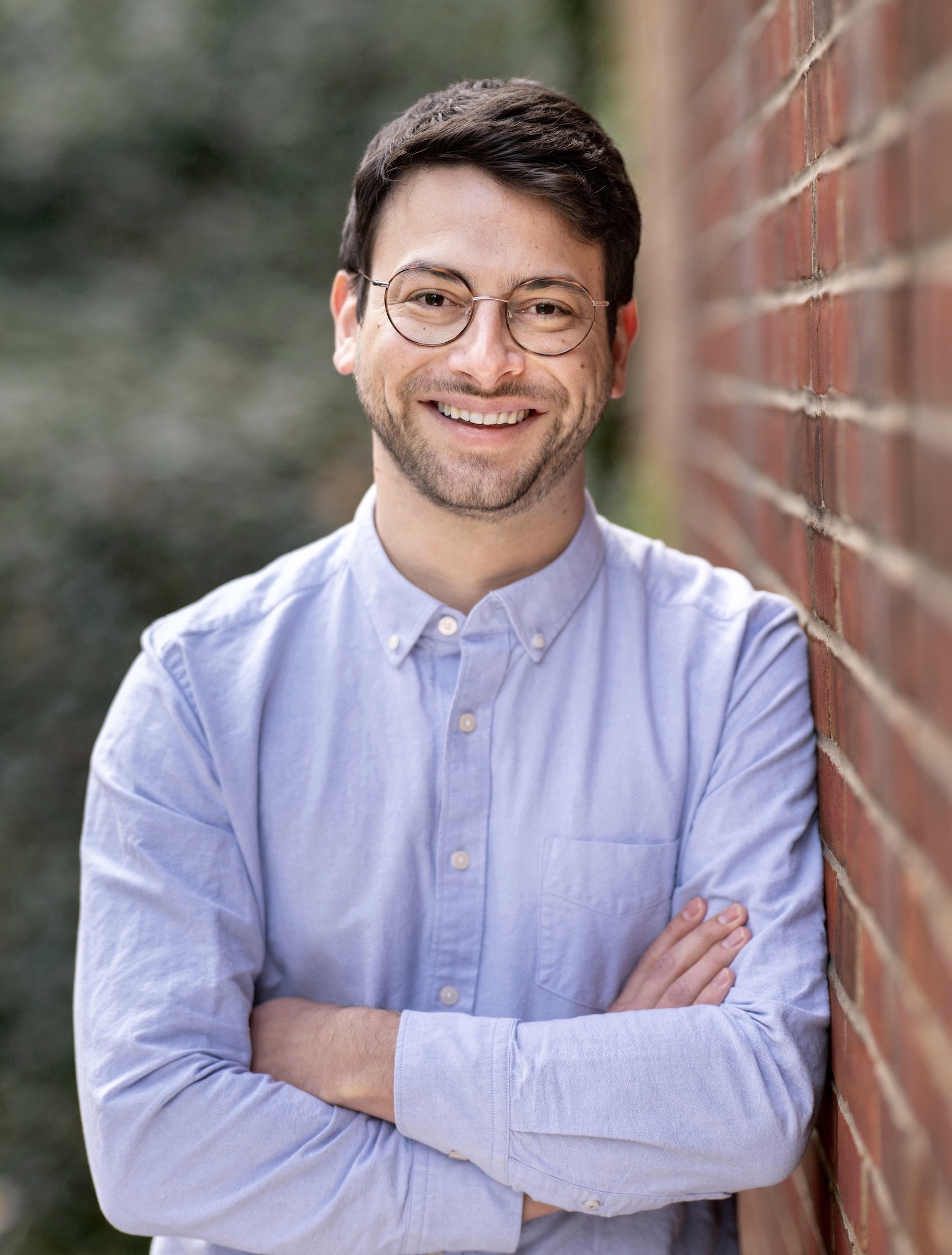
Assistant Professor of Sociology
Charles H. Mcllwain University Preceptor
PRINCETON UNIVERSITY
Contact
samtrejo [at] princeton [dot] edu
(609) 258-4436
187 Wallace Hall
Princeton, NJ 08544
Links
Princeton Sociology Department
Popular Writing
Fun
Biography
My name is Sam Trejo—I am a sociologist and demographer interested in how social and biological factors jointly shape human development across the life-course. I specialize in quasi-experimental, computational, and biosocial quantitative methods. My research has been published in a range of academic journals, including PNAS, Science Advances, the American Journal of Sociology, and Sociological Science. I also co-lead the Princeton Biosociology Lab.
My work encompasses two primary research areas. The first integrates genomic information into the social and behavioral sciences. This includes utilizing polygenic scores to analyze genetic risk factors and gene-environment interactions, as well as employing genetic ancestry measures to explore racial and ethnic identity formation and demographic change. My second research area leverages field and natural experiments to investigate the factors that produce educational and health inequalities, with particular attention to the reciprocal relationship between education and health. This work has examined topics such as childhood lead exposure, fatal school shootings, and economic segregation.
I recently co-authored a book with Stanford University bioethicist Daphne Martschenko entitled What We Inherit: How New Technologies and Old Myths Are Shaping Our Genomic Future (forthcoming from Princeton University Press). Over the past decades, human genetics has rapidly produced an array of unprecedented genomic tools. In the book, Daphne and I debate and discuss the social, ethical, and policy issues raised by this DNA revolution. While we disagree on many points, we share a firm belief that successfully navigating the transition to a society with increasingly accurate and available genetic prediction requires taking seriously both the impact of DNA and the dangers of pernicious genetic myths. What We Inherit will be released on February 3, 2026. A Q&A containing more information about the book can be found here.
When not puzzling over human behavior, I enjoy biking, playing board games, and spending time with my wife Marissa and our dog Pickle. The R code used to create this website is available here.
Research
* Joint lead authorship § Senior authorship
●
PDF
●
FAQ
●
Data/Code
●
Pre-Reg
● Working Papers
DNA Reveals the Growing Ancestral Diversity of the United States
Sam Trejo and Marissa Thompson. APC Working Paper.
Leveraging Genomic Data to Document Within-Race Attractiveness Penalties Among Black Americans
Beza Taddess*, Luyin Zhang*, and Sam Trejo§. SocArXiv.
Does Standard Adjustment for Genomic Population Structure Capture Direct Genetic Effects?
Ramina Sotoudeh*, Sam Trejo, Arbel Harpak, and Dalton Conley§. bioRxiv.
○ Published & Forthcoming Papers
2026
Policing the Boundaries of Blackness: How Black and White Americans Evaluate Racial Self-identifications
Marissa Thompson, Sam Trejo, AJ Alvero, and Daphne Martschenko. Forthcoming at American Journal of Sociology. ● ●
2025
Genotypic and Socioeconomic Risks for Depressive Symptoms in Two U.S. Cohorts Spanning Early to Older Adulthood
David A. Sbarra, Sam Trejo, K. Paige Harden, Jeffrey C. Oliver, and Yann C. Klimentidis. Journal of Psychopathology and Clinical Science.
2024
Using the Phenotype Differences Model to Identify Genetic Effects in Samples of Partially Genotyped Sibling Pairs
Sam Trejo and Klint Kanopka. Proceedings of the National Academy of Sciences. ●
The Effects of the Flint Water Crisis on the Educational Outcomes of School-Age Children
Sam Trejo, Gloria Yeomans-Maldonado, and Brian Jacob. Science Advances. ● ●
WASHINGTON POST I, WASHINGTON POST II, HARVARD PUBLIC HEALTH MAGAZINE, UNDARK MAGAZINE, PROPUBLICA, M-LIVE
Exploring the Fetal Origins Hypothesis Using Genetic Data
Sam Trejo. Social Forces. ●
*WINNER OF THE 2025 BEST PAPER AWARD (ASA BIOLOGY & SOCIETY SECTION)*
My School District Isn’t Segregated: Experimental Evidence on the Effect of Information on Parental Preferences Regarding School Segregation
Marissa Thompson* and Sam Trejo*. Sociology of Education. ● ● ●
2023
Beware the Phony Horserace between Genes and Environments
Sam Trejo* and Daphne Martschenko*. Behavioral and Brain Sciences. ●
2022
Ubiquitous Bias and False Discovery Due to Model Misspecification in Analysis of Statistical Interactions: The Role of the Outcome’s Distribution and Metric Properties
Benjamin W. Domingue, Klint Kanopka, Sam Trejo, Mijke Rhemtulla, and Elliot M. Tucker-Drob. Psychological Methods. ● ●
Ethical, Anticipatory Genomics Research on Human Behavior Means Celebrating Disagreement
Daphne Martschenko* and Sam Trejo*. Human Genetics and Genomics Advances.
2021
Modeling Interaction and Dispersion Effects in the Analysis of Gene-Environment Interaction
Benjamin W. Domingue*, Klint Kanopka, Travis T. Mallard, Sam Trejo, and Elliot M. Tucker-Drob§. Behavior Genetics. ● ●
2020
Interactions Between Polygenic Scores and Environments: Methodological and Conceptual Challenges
Benjamin W. Domingue, Sam Trejo, Emma Armstrong-Carter, and Elliot Tucker-Drob. Sociological Science. ●
Local Exposure to School Shootings and Youth Antidepressant Use
Maya Rossin-Slater*, Molly Schnell*, Hannes Schwandt*, Sam Trejo, and Lindsey Uniat. Proceedings of the National Academy of Sciences. ●
PRESIDENTIAL ECONOMIC REPORT, WASHINGTON POST, LOS ANGELES TIMES, THE HILL
The Earliest Origins of Genetic Nurture: The Prenatal Environment Mediates the Association Between Maternal Genetics and Child Development
Emma Armstrong-Carter*, Sam Trejo*, Liam Hill, Kirsty Crossley, Dan Mason, and Benjamin W. Domingue§. Psychological Science. ● ●
2019
Genetics and Education: Recent Developments in the Context of an Ugly History and an Uncertain Future
Daphne Martschenko*, Sam Trejo*, and Benjamin W. Domingue*. AERA Open.
2018
Schools as Moderators of Genetic Associations with Life Course Attainments: Evidence from the WLS and Add Heath
Sam Trejo*, Daniel W. Belsky, Jason D. Boardman, Jeremy Freese, Kathleen Mullan Harris, Pamela Herd, Kamil Sicinski, and Benjamin W. Domingue§. Sociological Science.
2016
An Econometric Analysis of the Major Choice of First-Generation College Students
Sam Trejo. The Developing Economist. ●
● Resting Papers
Problems with a Causal Interpretation of Polygenic Score Differences between Jewish and non-Jewish Respondents in the Wisconsin Longitudinal Study
Jeremy Freese, Benjamin W. Domingue, Kamil Sicinski, Sam Trejo, and Pamela Herd. SocArXiv.